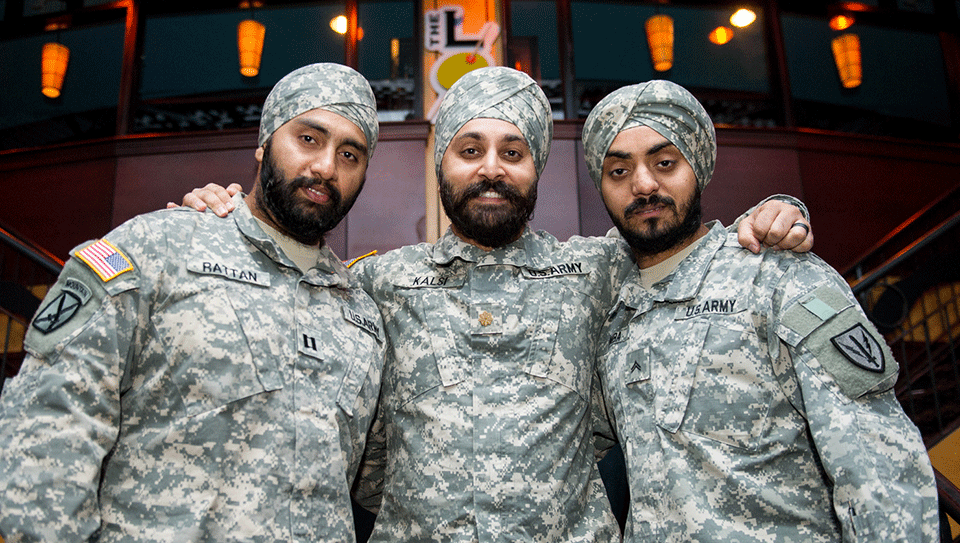
Community
Today, Sikhs live all over the world, are embedded within their local and national communities, and remain committed to the core values of spiritual growth and social justice. Sikhs continue to establish gurdwaras with and for their communities, and Sikhs strive to maintain basic aspects of the tradition within these contexts. Sikhs have been in the United States for more than a century now, and they have established themselves as active contributors to civic society.
Sikhs in America
There are nearly 30 million Sikhs around the world today, and a vast majority of them live in the Indian state of Punjab. There is also a robust and flourishing diaspora, with communities large and small all over the globe. Much of the diaspora is concentrated in the commonwealth due to migration within the British empire, yet Sikhs continue to establish themselves in various countries throughout the world.
From the time of their arrival in the late 1800s, Sikh men and women have been making notable contributions to American society. Early immigrants settled in the western frontier, where they played a major role in building America’s railroads. Sikh Americans like Bhagat Singh Thind served in the U.S. military during the World Wars, and the first Asian American Congressman was a Sikh American elected to office in 1957.
The inventor of fiber optics is a Sikh American, as is the country’s largest peach grower, the mayor of Charlottesville, Virginia, and Morgan Freeman’s physician. Sikh American women continue to make diverse contributions, such as Grammy-winning artist Snatam Kaur, commercial airline pilot Arpinder Kaur, and Columbia University professor Supreet Kaur.
Despite their immense contributions to society, Sikhs continue to experience an immense amount of discrimination and hate in modern America. The United States is unique in this regard — in most other countries around the world, people tend to be far more familiar with the Sikh tradition. Cultural and religious illiteracy, coupled with a distinct visible identity, has led to xenophobic violence against Sikhs since their arrival in America more than a century ago. Sikh Americans have been particularly vulnerable to discrimination and hate in the post-9/11 context that is rife with anti-Muslim sentiment and xenophobic violence.
